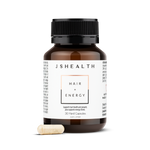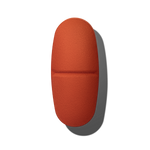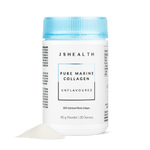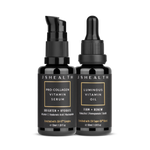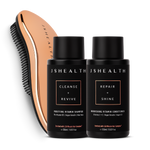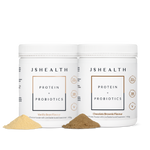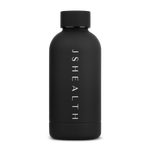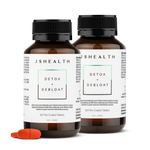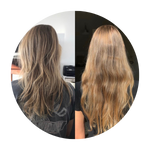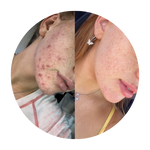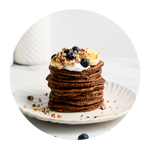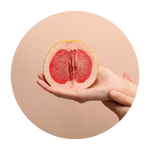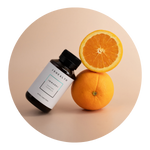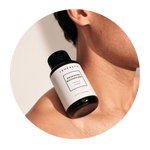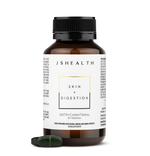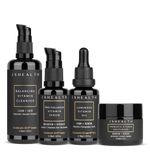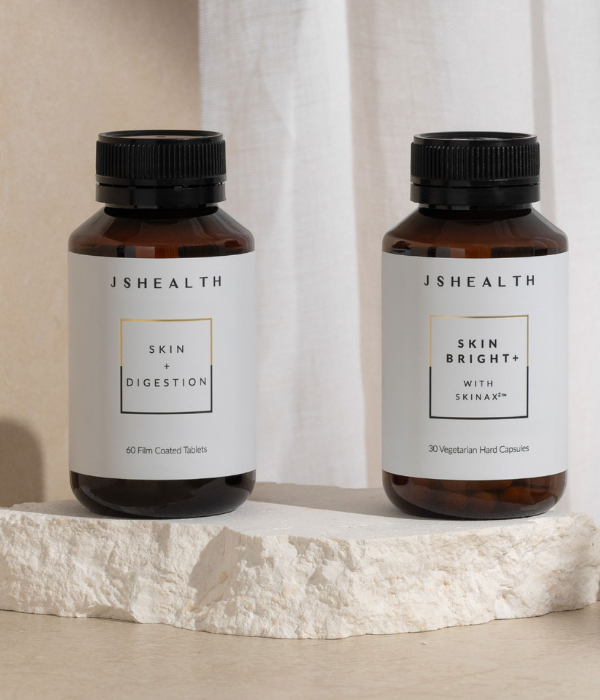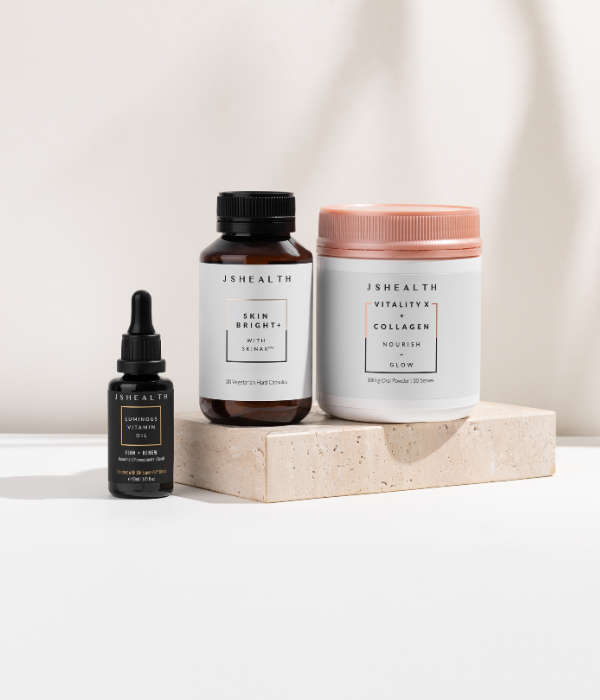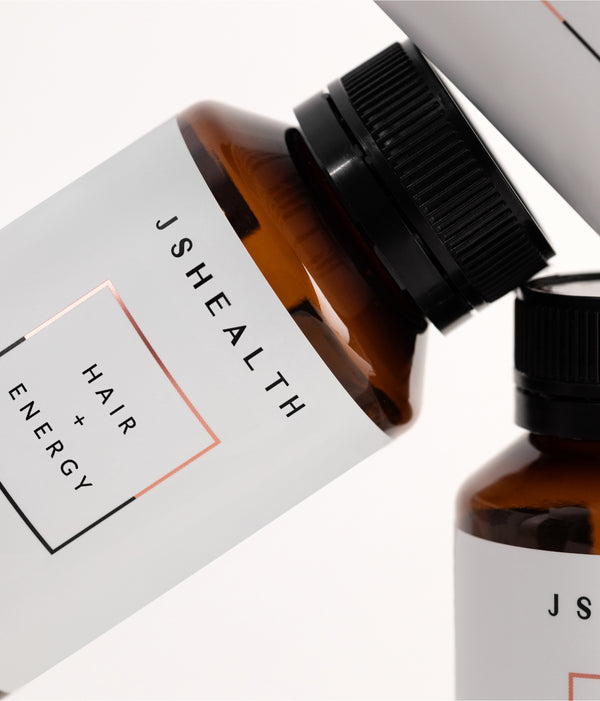Try these Coffee Alternatives
Coffee is a super popular beverage; internationally, it’s estimated that 2 million cups of coffee are consumed daily. Coffee beans contain a fair amount of molecules like antioxidants and micronutrients with anti-inflammatory properties, which can have health benefits. While relatively good in moderation, in excess, this beverage can have some unintended side effects. These can include feeling unsettled, having trouble falling asleep, and in some individuals, gastrointestinal upset.
Coffee is highly enjoyable and can even be addicting; if you want to decrease your coffee consumption of coffee it can be difficult — but don’t worry! It is entirely possible.
Here’s a closer look at how coffee affects your body, why you may consider limiting your consumption, and some of the best coffee alternatives.
How Does Coffee Impact the Body?
Coffee is made by grinding coffee beans and extracting coffee from the grounds. This can be achieved by pouring hot water over a bed of coffee or utilizing high-pressure hot water as with an espresso machine. Regardless of your brew method, the general composition of coffee remains the same — hot or iced.
The main component of coffee that provides its short-term energy boost is caffeine. Caffeine interacts with your body in several ways to provide you with alertness and wakefulness. One of the ways caffeine interacts with your body is by binding to adenosine receptors within your brain.
Adenosine is a neurotransmitter in the brain, and it is slowly released throughout the day, accumulating in its receptors. This accumulation causes you to feel tired and helps with getting you to sleep. Caffeine blocks adenosine from binding, which tricks your brain into being more alert.
The caffeine in coffee also acts as a stimulant and a diuretic within the body. The stimulant properties can cause caffeine jitters when you consume too much coffee.
Why Reduce Coffee Consumption?
Caffeinated drinks like coffee can be a great way to start your day, but in excess, its consumption could lead to less-than-fun issues. Your morning cup of coffee is unlikely to cause any significant issues. Still, if you are drinking many cups of coffee throughout the day or switching from coffee to energy drinks in the afternoon, you may be negatively impacting parts of your health.
Below are a few reasons you may consider reducing your intake of coffee.
GI Upset
Coffee affects everyone slightly differently, but for some, regular coffee may cause gastrointestinal upset and potentially trigger other GI problems. Irritable Bowel Syndrome can be an example of this, where the caffeine content in coffee may trigger IBS symptoms. Even if you don’t have IBS, black coffee can be acidic and cause your stomach to feel unsettled.
Excessive Stress
Coffee has a relatively high amount of caffeine; some people may find it makes them anxious and more stressed. This feeling is not uncommon as caffeine is a stimulant that can activate the fight-or-flight response, raising your heart rate, blood pressure, and alertness. If you are already feeling stressed or anxious, these effects of caffeine may exacerbate them.
Problems Sleeping
Sleep is very important to your overall well-being; unfortunately, coffee can harm your sleep. As stated earlier, caffeine directly interacts with neurotransmitters in the brain to delay feeling tired, which can be desired but can also disrupt your ability to fall asleep and achieve a good night's sleep.
Your morning cup of coffee is unlikely to impact your sleep, but drinking coffee in the late afternoon to get past the mid-afternoon slump may negatively impact your sleep. Simply transitioning to a non-caffeinated beverage after noon can help significantly improve your ability to fall asleep when needed.
Kick Your Caffeine Addiction
The caffeine in a cup of coffee can be a great pick-me-up, but over time, your regular caffeine consumption can lead to caffeine addiction. An addiction to caffeine is not very impactful on your life but can increase your tolerance to caffeine, meaning you have to consume more caffeine to achieve the same result.
Additionally, if you have developed a dependence on coffee when you stop consuming your morning cup of coffee, it could lead to some side effects like irritability, headache, low energy levels, and a harder time concentrating.
We’re all about balance, and that includes balance with coffee. This doesn’t mean you have to give it up altogether! It’s just about finding moderation. It’s better ‘latte’ than never to start reducing your intake.
The JSHealth guideline aims to stick to one cup of coffee per day, before midday if possible, for quality sleep, reduced cortisol levels and to support sugar cravings.
However, we know that sometimes desperate times can call for desperate measures. So here we have provided you with our favourite alternatives for when you’re feeling like reaching for that second cup.
Below is a closer look at some coffee alternatives to consider.
- Caffeinated Transition Beverages: Quitting coffee cold turkey will most likely cause you to feel the adverse effects of caffeine withdrawal. It may be a good idea to ease your body into the transition away from caffeine if you regularly drink coffee that is not decaf. Some natural coffee substitutes that contain less caffeine than a cup of coffee include matcha tea, chai tea, green tea and tea that uses black tea leaves.
- Dandelion rootlatte: delicious with a dash of almond milk and a pinch of cinnamon. We love the brand ‘Kintra foods’.
- Rooibos tea: We love the brand ‘Love Tea’ or ‘The English Tea Shop.’
- Any herbal teas such as chamomile, peppermint, liquorice or rosehip. Herbal tea is a great caffeine-free option that can even be enjoyed in the evening time without impacting your sleep.
- Kombucha: Kombucha is a great beverage that is typically made from tea and then fermented. The fermented beverage can act as a probiotic and help support a healthy gut while simultaneously providing a tasty beverage.
- JSHealthvitamins AM+ formula: The AM+ formula contains a synergy of adaptogenic herbs, vitamins and nutrients designed to support your day. It contains Rhodiola to assist the body to cope with environmental stress and, along with Vitamin B5, supports healthy stress response in the body. American Ginseng has been traditionally used in Western herbal medicine as a nerve tonic and adaptogen to help the body adapt to stress. Vitamins B5 and B6 support the health and function of the nervous system.
-
JSHealth Hair + Energy Formula: Coffee and other caffeinated beverages are often utilized to help boost energy, but ultimately caffeine is a bandage for unaddressed low energy levels. Our Hair + Energy formulation helps address your energy levels by providing your body with nutritional support to help facilitate more natural and sustainable energy levels. Nutritional deficiencies could be an underlying cause of fatigue, and this dietary supplement includes iodine which plays an important role in hormonal health and energy levels.
-
JSHealth App ‘The Energiser 2.0’ workout with our expert trainer, Cassey: Expect short bursts of cardio, challenging your fitness levels and knowing that you’ll feel amazing post-workout.
-
JSHealth App ‘Energising Flow’ with yogi, Amy: This sequence is strong, and perfect to do whenever you feel like creating a little heat within your body. Remember to always rest or modify when you need to.
-
JSHealth App ‘Energising Breakfast Smoothie’: This smoothie is filled with protein, quality fats and fibre to keep your blood sugar levels stable and to keep you energised throughout the day.
-
JSHealth Spiced TurmericLatte- A powerful golden milklatte that contains the superfoodturmeric along with cinnamon, ginger and cayenne pepper for a slight kick.
https://jessicasepel.com/turmeric-latte/
- JSHealth Ayurveda Hot Chocolate - Contains a tasty blend of cacao, maca, cardamom and dates for sweetness.
https://jessicasepel.com/ayurveda-hot-chocolate/
Sources
Caffeine Withdrawal - StatPearls | NCBI
Association of Coffee and Caffeine Intake With Irritable Bowel Syndrome in Adults | NCBI
Pharmacology of Caffeine - Caffeine for the Sustainment of Mental Task Performance | NCBI
